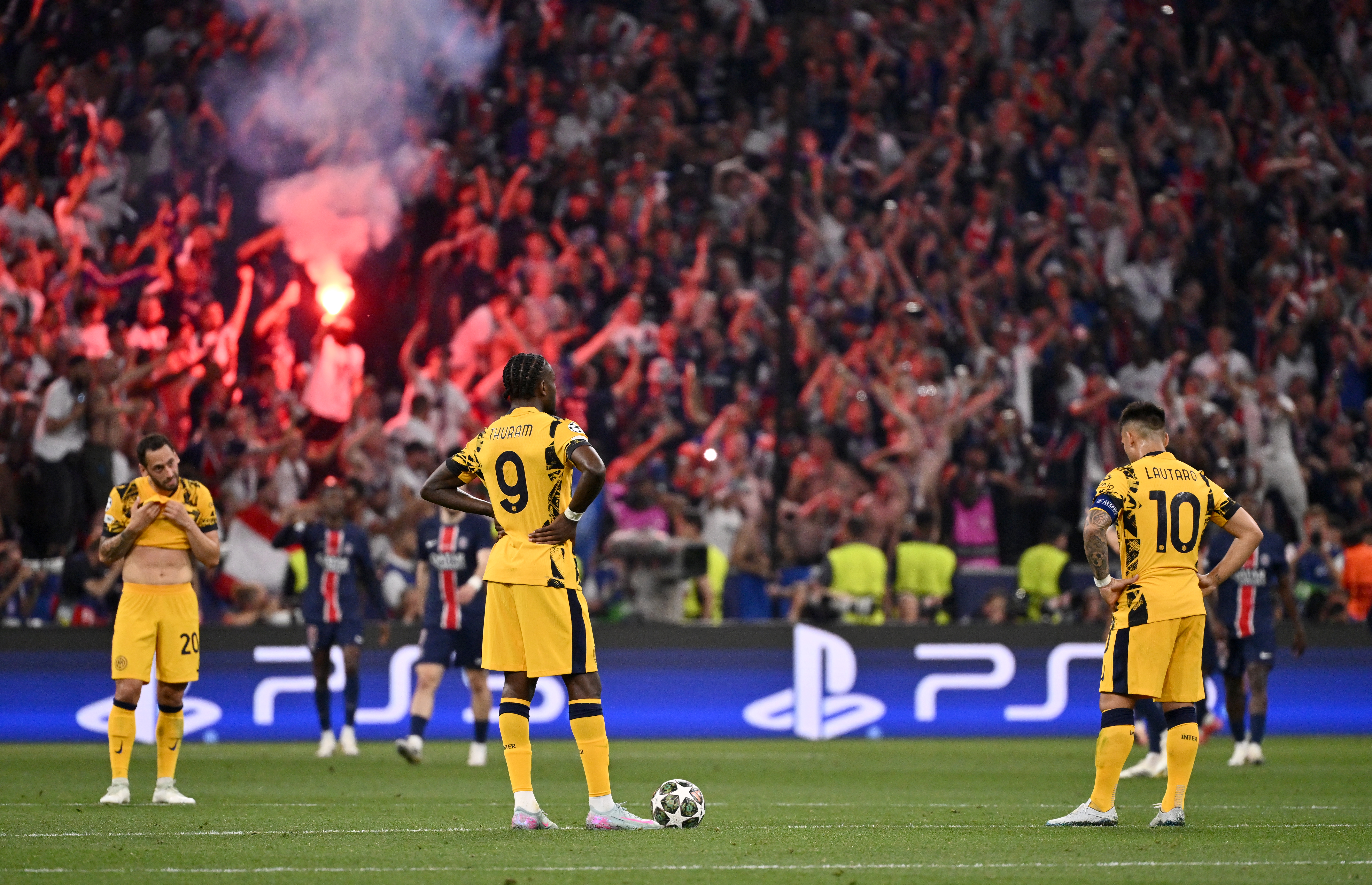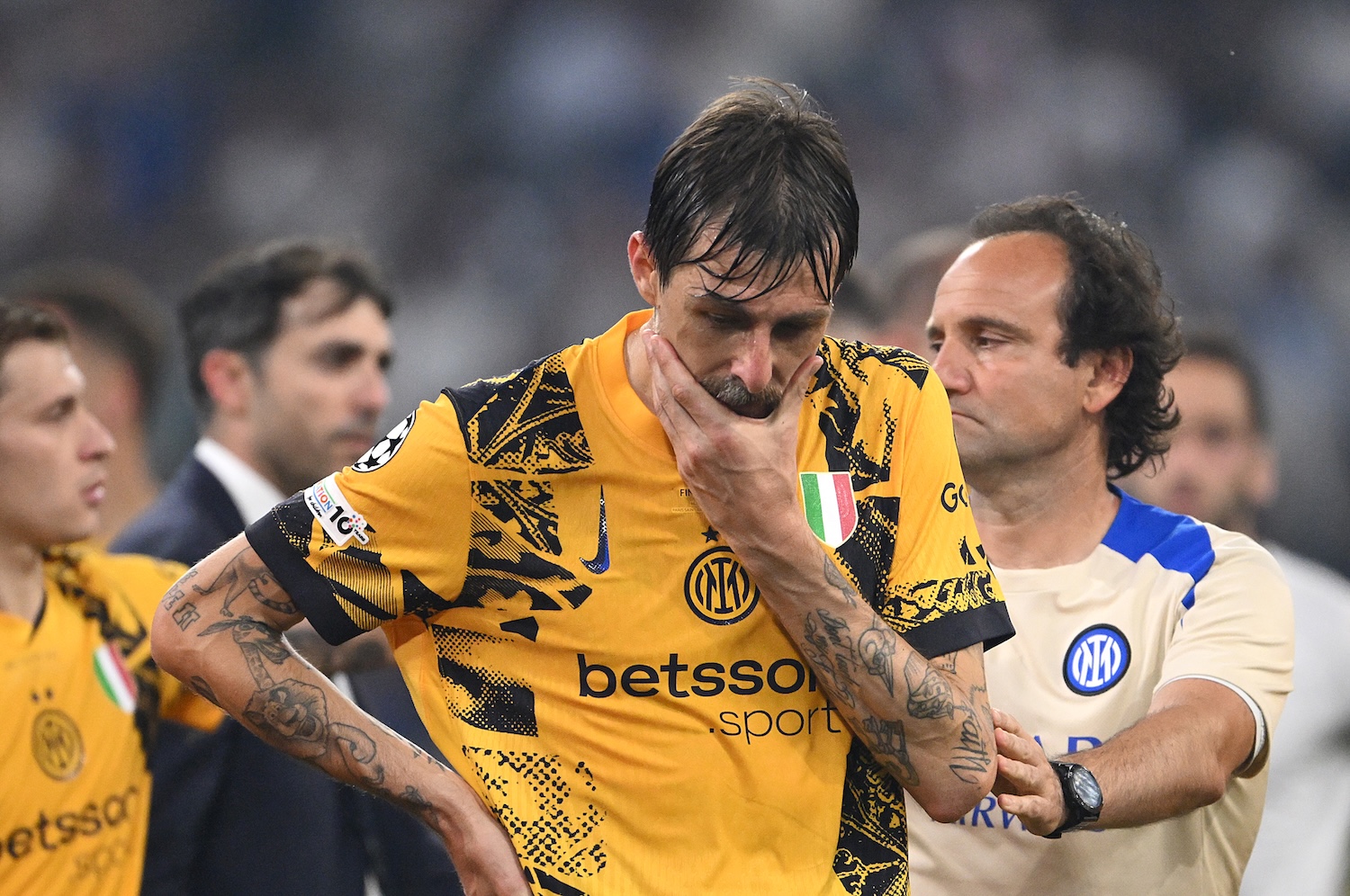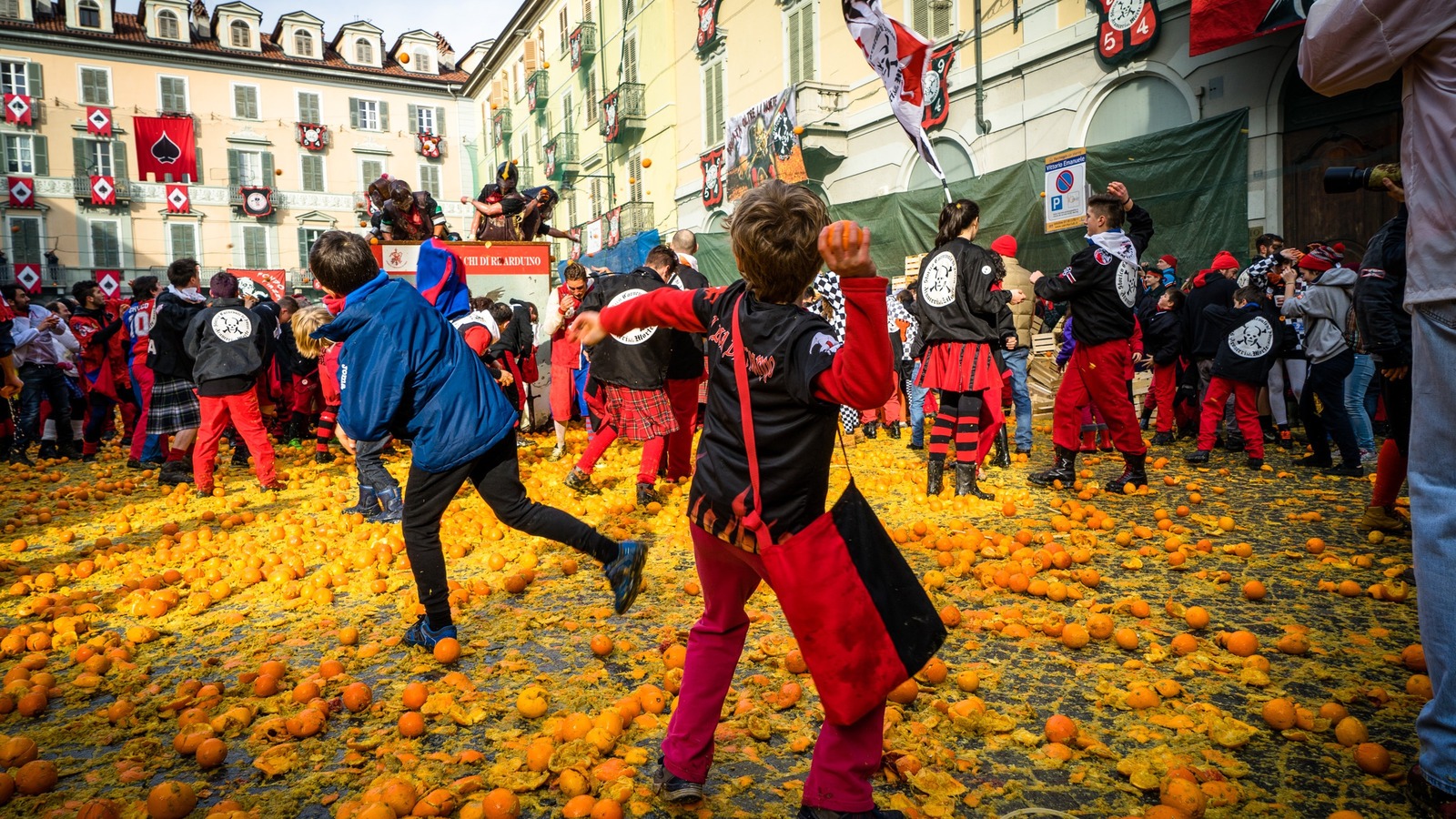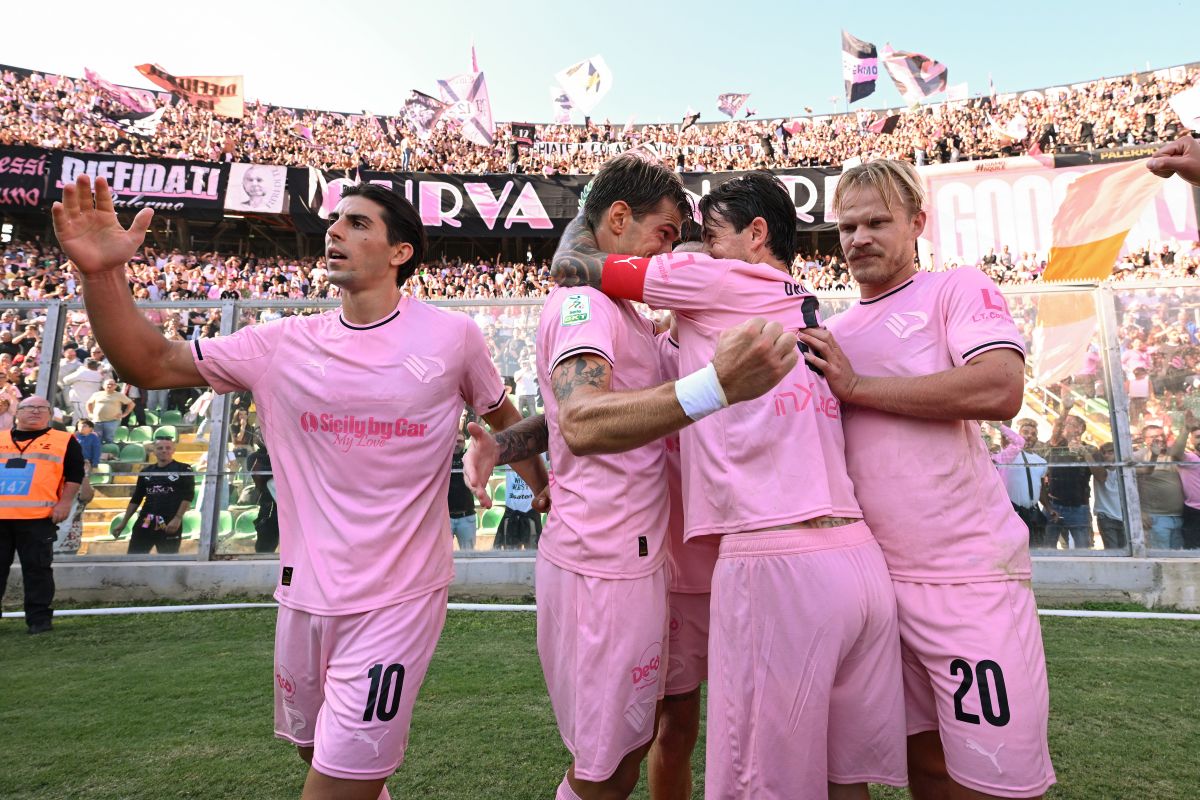
Inter’s Champions League Massacre by PSG Highlights Italy’s Financial Struggle
By Emmet Gates
Where do you go from here?
In light of the biggest massacre in European Cup history on Saturday night, to say there will be food for thought at Appiano Gentile would be the understatement of the century.
How do you come back from a humiliation like this? For a club that has had more than their fair share of them down the years – they aren’t called ‘pazza Inter’ for nothing – Munich 2025 will go down as the biggest.
Perhaps the league title collapse of May 5 2002, the 6-0 defeat by Milan in the 2001 Derby della Madonnina or losing to Israeli side Hapoel Be’er Sheva in 2016 represent the true nadir for Interisti. Yet their capitulation to Paris Saint-Germain made history, a demolition seen across the world.
It could take Inter years to recover from such a devastating and very public knockout.
Simone Inzaghi, clearly, got things wrong in Munich. Average age aside, Inter looked unbelievably leggy in southern Germany, lightyears away from what we have come to expect from Inzaghi’s band of grizzled warriors.
He had rested the majority of the starting XI in the weeks leading up to the final. The argument could be made this backfired, with Inter players lacking any rhythm or continuity.
Inzaghi’s decision to make four defensive substitutes when needing goals was also a head scratcher. By then, the game was lost, with only a sliver of pride still at stake.
If Inter could feel hard done by in Istanbul two years ago, when they were the better side against a Manchester City team with vastly superior resources, there could be no complaints this time.
Inzaghi’s brilliance as a coach has long masked Inter’s financial problems. A defeat on this scale was unimaginable to most, but is it really surprising considering the financial disparity between the sides?

The 2025 edition of the Deloitte Football Money League table highlights this. PSG sit third behind Real Madrid and Man City for club revenue from the 2023-24 season, just over €800million. Inter, meanwhile, are 14th and earned €391m.
Now, given their run to this year’s final, Calcio e Finanza report Inter are on course to break €500m for the first time and will return to being in profit for the first time in decades.
However, no one paid more in salaries last season than PSG, their wage bill of €658m in 2023-24 dwarfing Inter’s more modest €232m. Even with Kylian Mbappe now off their books, the French side’s wage bill is exorbitant.
PSG bought Khvicha Kvaratskhelia from Napoli in January for €70m; Inter haven’t spent more than €30m on a player in the last four years.
Desire Doue, scorer of two goals in Munich, and Bradley Barcola, who came on for the final 25 minutes, cost €100m between them.
In addition to Kvaratskhelia and Doue, PSG spent a further €120m on talent last summer. Inter spent roughly €20m on players, or the equivalent to a back-up Russian goalkeeper in PSG’s case.
There are levels to the game.
In the face of so much financial disparity, Inter and Inzaghi can only do so much, and the annihilation in Munich was yet another reminder of just how far the Italian game is behind its European counterparts.
Of course, PSG are bankrolled by a nation state and therefore are, like City, a special case, but the monumental gap in finances between Inter and two of the sides they beat along the way to the final, Bayern Munich and Barcelona, is similarly gargantuan.
Bayern earned €765m in 2023-24, while the Catalans brought in €5m less than the Bavarians. Inter’s neighbours Milan were Italy’s best performing side in the Deliotte Money League, placing one spot above the Nerazzurri in 13th with €397m.
Inter’s demolition was also a resounding defeat for the Italian game and again highlighted the government’s lack of assistance in helping the country’s most popular sport to modernise.
Domestic TV money for Serie A decreased from the 2021-24 cycle to the current one, meaning Inter’s TV money went from €101m per season to around €80m.
Moreover, foreign rights for Serie A bring in a relative pittance compared to the Premier League and La Liga.
Stadiums is the one area where clubs can really strive to improve. While Serie A’s average attendance is at its highest figure in 25 years and the third-highest in Europe, the product still looks third-rate on TV because, as everyone knows, grounds in Italy are in dire need of improvement.
Build new stadiums and fans will flock, this in turn lifts the ticket prices and also enhances the product on TV.

Inter earned around €80m from matchday revenue this season, but as Beppe Marotta highlighted leading into the final in Munich, had they been playing in a renovated San Siro, that figure could easily be in triple digits.
PSG, by contrast, earned €170m in 2023-24 from matchday revenue, despite the Parc des Princes being around half the size of the San Siro, holding a shade over 48,000 seats.
That’s more than Inter and Milan’s matchday revenue in 2023-24, combined.
The issue of stadium building in Italy has been raised time and again in these pages. Even with the country being handed Euro 2032 hosting duty, the bureaucratic quagmire faced by clubs has not been fully streamlined.
Projects continue to be blocked at all levels, and Italy now has 16 months to show UEFA some proof of progress. Bar the work under way at the Stadio Artemio Franchi in Florence, there has not been any.
Calcio’s problems don’t start and end with stadiums, but having modern arenas would, at the very least, arm its clubs better in continental competition.

It is now 15 years since an Italian team won the Champions League. As the gap with Europe’s biggest clubs widens, it is difficult to see where the next Italian winner comes from.
It is a damning indictment of where the modern game is that earning €300m-€400m per year simply isn’t enough to win UEFA’s biggest prize. In the era of the superclub and with several pushing the billion-euro mark, Italy is starting every season with one arm tied behind its back.
As good a coach as Inzaghi is he could only do so much.
Until Serie A sides receive some measure of help from the state, the sight of Javier Zanetti hoisting the European Cup high into the Madrid sky will remain the last image of an Italian victory for quite some time.
Related Articles
Related Articles
Football rivalries, world-class sport, surreal carnivals, and a tradition you won’t find anywhere else. Five events to catch in February.
In the latest edition of My Town, My Team, Napoli fan Alex told us why everybody should visit Naples at least once.
Sampdoria against Palermo at the Stadio Luigi Ferraris is just one of the standout matches to be shown live on Destination Calcio TV.




